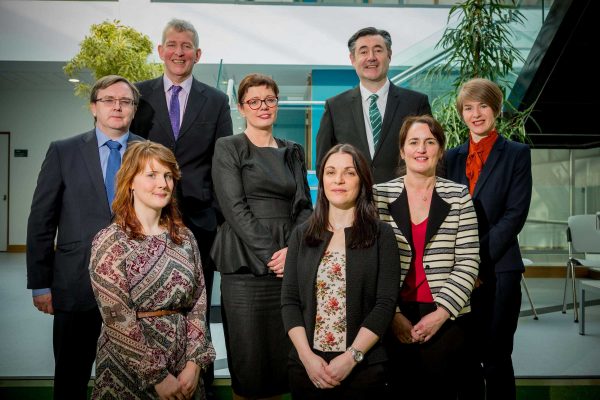IT Sligo has broken new ground in becoming the first Institute of Technology to secure approval for a Masters in Social Work.
It is planned that the new MA in Social Work, which is a two-year, full-time course, will start in September 2018 and will support the development of graduates into a sector that is suffering a skills shortage.
The Masters was developed in direct response to the urgent social work crisis in Ireland. Waiting lists for social worker interventions exist across all service areas including: children and young people; care of the elderly and the disability sector.
Dr. Breda McTaggart, Head of IT Sligo’s Department of Social Sciences, said:
“There is an urgent social work crisis in Ireland and more social workers are needed to cope with the demand. The increase in social workers is essential to meet the needs in communities where waiting lists for social worker interventions exist across all service areas. We are delighted that IT Sligo is going to be able to service this need – especially for the North West region.”

Some of the team who secured the Masters in Social Work for IT Sligo – a first for an Institute of Technology. Back Row (l-r) Pat McGarty (IT Tralee), Dr John Pender. Middle Row (l-r) Dr Leonard Taylor, Dr Breda McTaggart, Dr Niamh Gallagher. Front Row (L-r) Dr Maire Hanniffy, Brenda Feeney, Sinead Regan
She added that employer demand for social workers far exceeds the number of graduates available each year with large numbers of vacancies unfilled. This is leading to waiting lists in many areas, such as the allocation of social workers to child protection cases.
“It is anticipated that the majority of graduates of the IT Sligo programme will enter the many vacancies in the social work field. Consequently, the programme has been developed to provide the academic knowledge and skills to work in a variety of social work environments,” she said.
Dr. McTaggart said that there were many reasons why the team at IT Sligo decided to undertake the challenge of pursing an educational opportunity that is most often delivered within the University sector. She said:
“We felt it was important to put ourselves forward for this qualification when looking at the national policy landscape which advocates equity in access in educational opportunities. We knew there was a demand for such a course from our regional student base which we have not been in position to respond to.
“We knew that with the calibre of the department team, who are well known and respected in their fields, the team was in a strong position to provide this course to a high standard. But most importantly, we felt there was a moral obligation as a provider of Higher Education to address an employment need that impacts on the most of vulnerable in our society.
“We could no longer be accepting of this situation and made a decision to take on this challenge. The team and I are thrilled with the outcome of the validation panel and look forward to the first cohort of graduates who will start to address this employment need.”